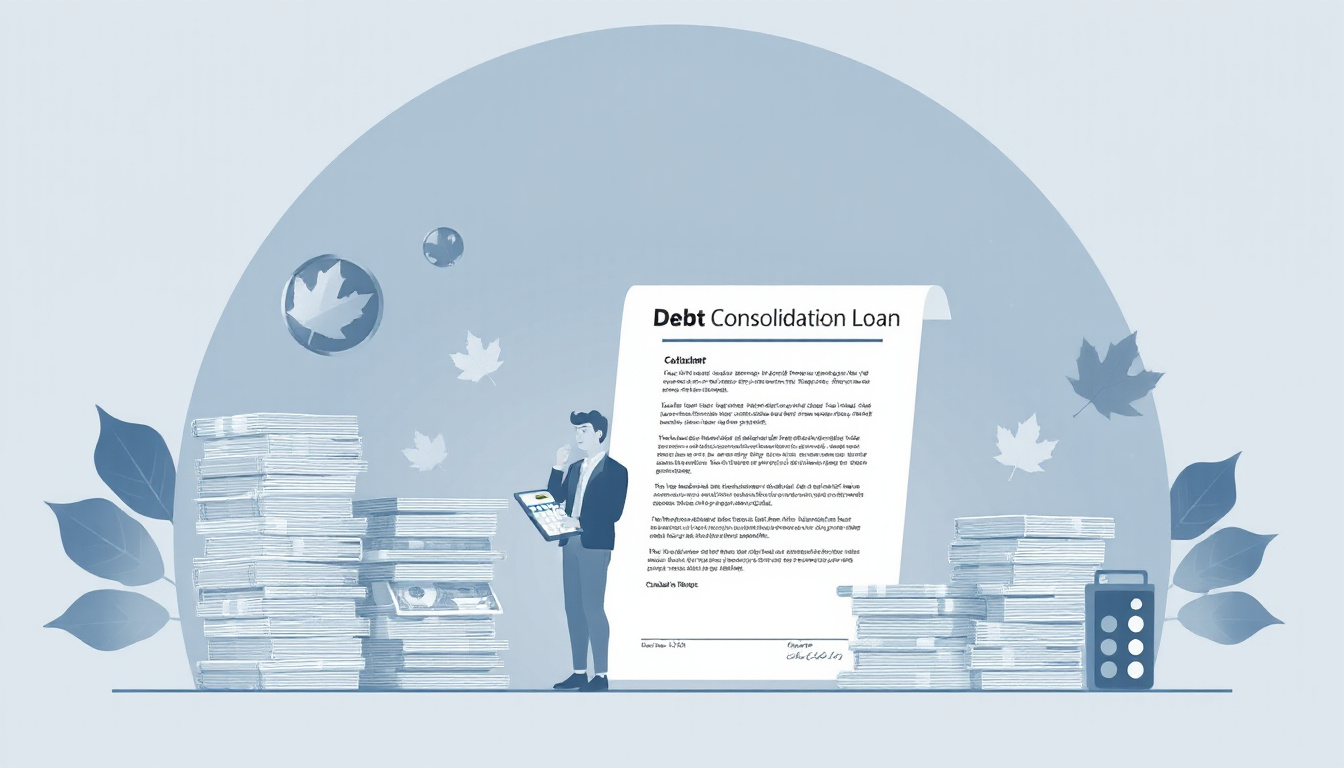Debt consolidation loans can be an appealing solution for Canadians struggling to manage multiple debts, offering the promise of lower interest rates and simpler payments. However, before diving into a consolidation loan, it is vital to thoroughly understand the potential risks involved. This guide will delve into the question, ‘What are the risks of debt consolidation loans?’ as we explore how debt consolidation works, highlight the potential pitfalls, and emphasize the importance of assessing your financial situation before making a borrowing decision. With the right knowledge, you can make informed choices that will lead you towards a more stable financial future.

Key Takeaways
- Debt consolidation combines multiple debts into a single loan with potentially lower interest rates.
- Risk factors include the possibility of incurring more debt if not managed properly.
- Consolidation loans can lead to longer repayment terms, resulting in higher overall interest costs.
- Borrowers should critically assess their financial health and spending habits before deciding to consolidate their debts.
- It’s essential to understand the terms and conditions of consolidation loans to avoid unexpected pitfalls.
What is Debt Consolidation and How Does It Work?
Debt consolidation is a financial strategy that involves merging multiple debts into a single loan, making it easier to manage payments and potentially lowering interest rates. It typically works by taking out a new loan that covers the total amount of your existing debts, reducing your monthly payments by extending the loan term or securing a lower interest rate. However, it is crucial to consider the risks of debt consolidation loans before proceeding. These risks may include incurring additional fees for the new loan, the possibility of falling into deeper debt if spending habits do not change, and the impact on your credit score if existing accounts are closed. Understanding these risks can help you make an informed decision about whether debt consolidation is the right path for your financial recovery.
Potential Risks Involved in Debt Consolidation Loans
Debt consolidation loans can be a viable option for many Canadians struggling with multiple debts, but it’s essential to understand the potential risks involved in this financial strategy. When considering ‘what are the risks of debt consolidation loans?’, several factors come into play. Firstly, while these loans can lower monthly payments by extending the repayment term or securing a lower interest rate, they can also lead to a higher total cost over time if not managed wisely. Additionally, consolidating debt might give a false sense of security, prompting some borrowers to accumulate more debt on credit cards or loans, leading to a cycle of perpetual borrowing. Furthermore, if the debt consolidation is done through a secured loan, you may risk losing valuable assets, such as your home or vehicle, if you default on payments. Lastly, it’s crucial to ensure that the consolidation service you choose is reputable; dealing with fraudulent or high-fee lenders can exacerbate financial struggles rather than alleviate them. Therefore, while debt consolidation loans can be an excellent tool for managing debt, it’s vital to weigh these risks carefully and consider working with a financial advisor to navigate your options.
‘The greatest risk is to risk nothing at all. In a world that is changing really quickly, the only strategy that is guaranteed to fail is not taking risks.’ – Mark Zuckerberg

Assessing Your Financial Situation Before Borrowing
Before considering any form of borrowing, including debt consolidation loans, it is crucial to assess your financial situation. This involves a thorough examination of your income, expenses, existing debts, and credit score. Understanding your financial health will help you answer the important question: what are the risks of debt consolidation loans? While these loans can simplify your payments and potentially reduce interest rates, they also come with pitfalls. For instance, if you consolidate your debts into a loan without addressing the underlying issues that led to your debt, you may find yourself in a deeper financial hole. Moreover, some consolidation loans might come with high fees or require collateral, which can put your assets at risk. Lastly, if you do not stabilize your spending habits post-consolidation, you could accumulate more debt, negating the benefits of your initial consolidation efforts. Being well-informed about these risks is a vital step in effective debt management and financial planning.
